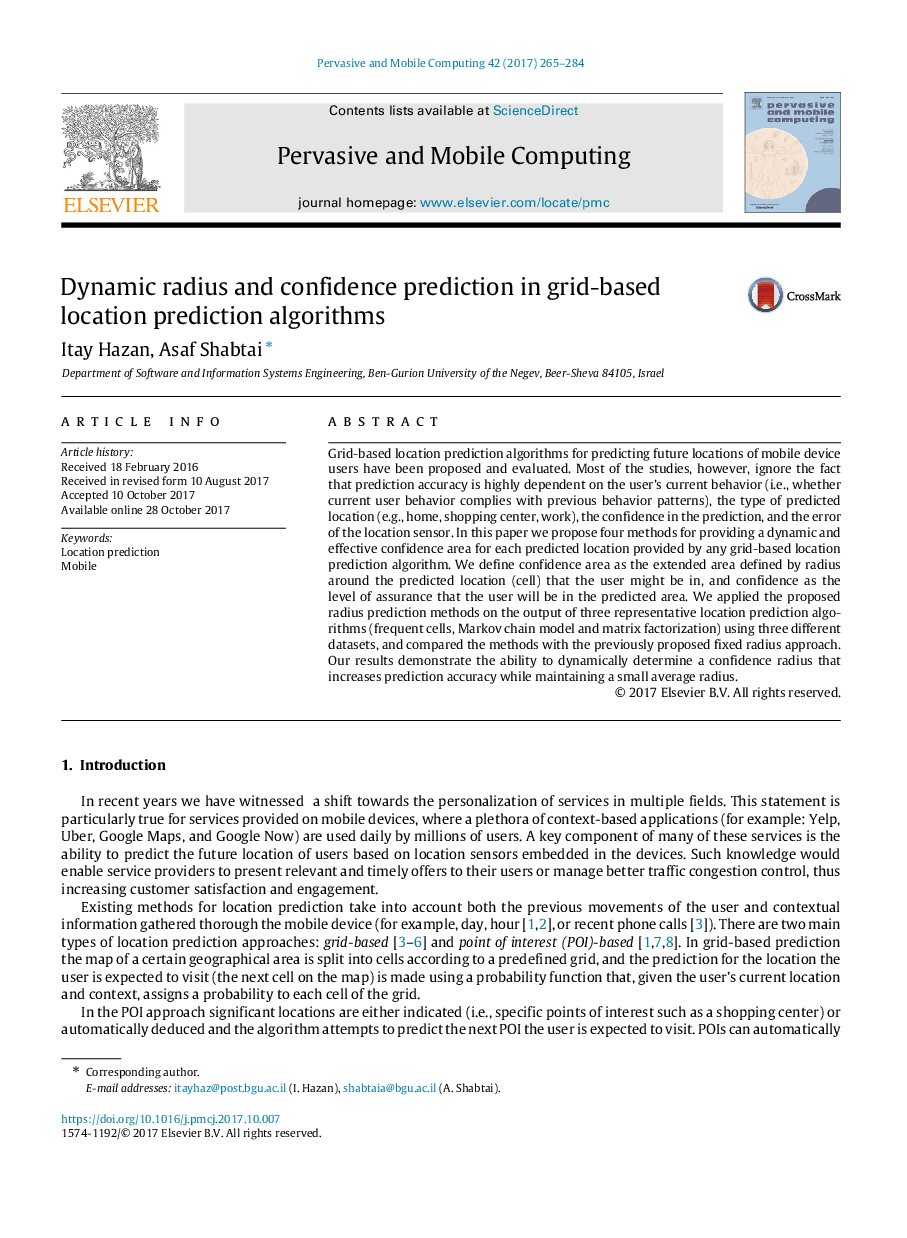| Article ID | Journal | Published Year | Pages | File Type |
|---|---|---|---|---|
| 6888692 | Pervasive and Mobile Computing | 2017 | 20 Pages |
Abstract
Grid-based location prediction algorithms for predicting future locations of mobile device users have been proposed and evaluated. Most of the studies, however, ignore the fact that prediction accuracy is highly dependent on the user's current behavior (i.e., whether current user behavior complies with previous behavior patterns), the type of predicted location (e.g., home, shopping center, work), the confidence in the prediction, and the error of the location sensor. In this paper we propose four methods for providing a dynamic and effective confidence area for each predicted location provided by any grid-based location prediction algorithm. We define confidence area as the extended area defined by radius around the predicted location (cell) that the user might be in, and confidence as the level of assurance that the user will be in the predicted area. We applied the proposed radius prediction methods on the output of three representative location prediction algorithms (frequent cells, Markov chain model and matrix factorization) using three different datasets, and compared the methods with the previously proposed fixed radius approach. Our results demonstrate the ability to dynamically determine a confidence radius that increases prediction accuracy while maintaining a small average radius.
Keywords
Related Topics
Physical Sciences and Engineering
Computer Science
Computer Networks and Communications
Authors
Itay Hazan, Asaf Shabtai,
